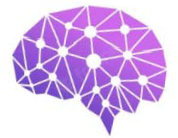
qEEG screening
Service code s9002
Short description
With the passage of time the brain is ageing naturally. Aging reflects the timing of brain events and certain processes: the gradual changes in the structure and function of the brain that occur with the passage of time and that do not result from disease or other gross accidents. Brain aging can be on par with chronological age (normal healthy aging) or delayed / accelerated. Delayed brain aging may reflect an active and healthy life and be related to better cognitive functions. Accelerated brain aging may reflect possible brain dysfunctions or abnormality and may be related to various cognitive deficiencies, neuropsychiatric and neurodegenerative disorders.
Your true brain age is not the number of years that have passed since you were born. That is your brain chronological age. The true - biological brain age - is determined by various physiological (internal) and environmental (external) factors and it reaches its optimum at 18-20 years old. Therefore, this age is considered as the optimal baseline. At this age your attention is acute, you think, mentally process and react fast. The brain at this time uses resources economically and optimally and has the best self-regulatory mechanisms. Additionally, the number of connections between neuronal cells is at its maximum at this time, which guarantees optimum of brain' performance land overall mental abilities.
The biological age reflects your unique ageing trajectory. So, your brain can be older or younger than both your chronological age and the optimal baseline.
Learn the true age of your brain!
Since many of the qEEG characteristics are age-dependent, qEEG screening can be helpful for objective assessment of neurophysiological processes of aging.
Results
By performing this qEEG screening you will get the information on:
- the biological age of your brain and a comparison to your chronological age.
Notes:
- The results of qEEG analysis are put in context of published scientific studies, the individual’s health history, complaints, symptoms and psychometric and other evaluations (if available).
- Present psychotropic medication use may affect the results.
To place a service order, use the following email:
References
- Duffy FH, Albert MS, McAnulty GB: The pattern of age-related differences in electrophysiological activity of healthy subjects. Neurobiol Aging 1993; 14: 73-74.
- Ishii R, Canuet L, Aoki Y, Hata M, Iwase M, Ikeda S, Nishida K, Ikeda M. Healthy and Pathological Brain Aging: From the Perspective of Oscillations, Functional Connectivity, and Signal Complexity. Neuropsychobiology 2017; 75: 151–161.
- Shearer DE, Emmerson RY, Dustman RE. EEG Relationships to Neural Aging in the Elderly: Overview and Bibliography, American Journal of EEG Technology, 1989; 29(1): 43-63.